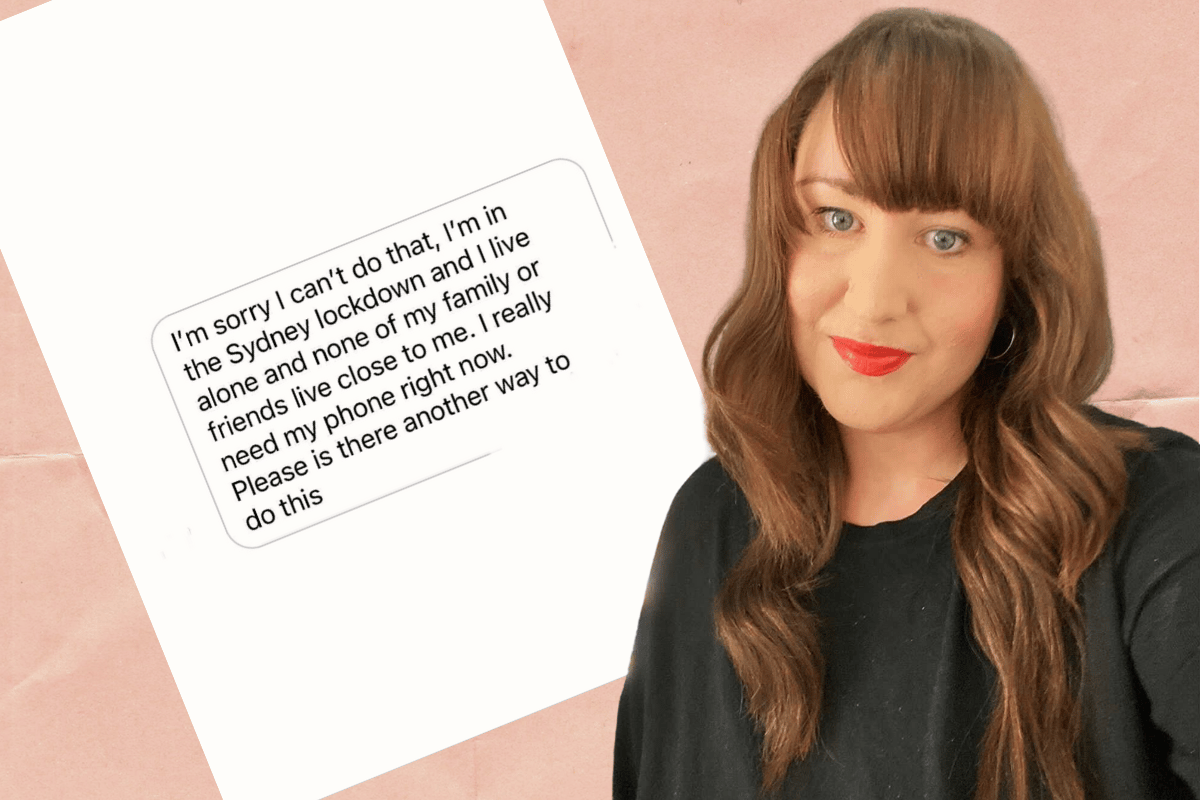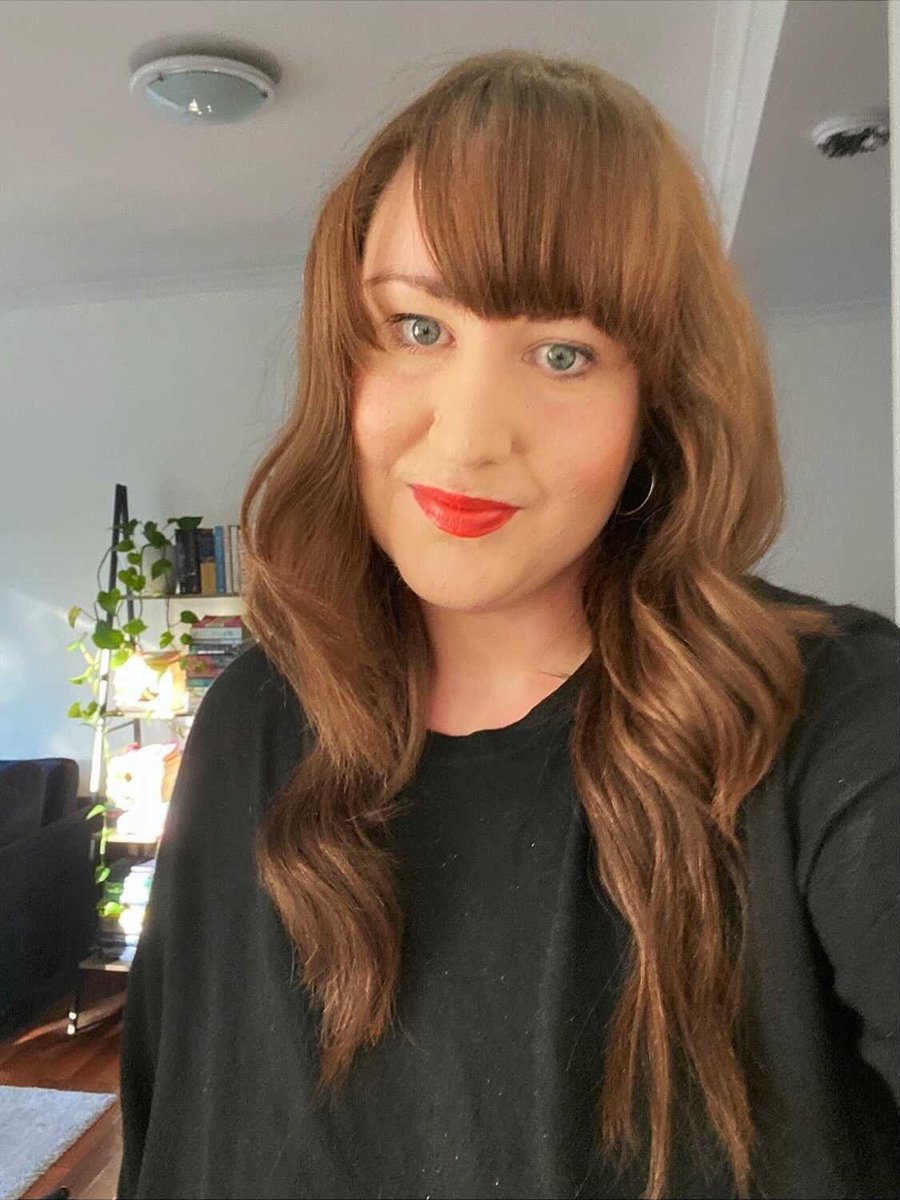
For more than six weeks I have not allowed myself to cry.
Every time I felt a salty sting behind my eyes, a flush of heat through my cheeks or a lump of dread begin to form in my throat, I would hold my breath until the tears disappeared like water down a drain.
Basically, my life had turned into the equivalent of standing in a kitchen and holding my hand over the hissing lid of a shaken Coke bottle.
I was stopping the explosion from taking place, but now all my energy was directed at keeping that lid from bursting.
I didn’t cry as the borders around Sydney closed and I was cut off from my family or when I waved goodbye to my friends in the office as we packed up our things to work from home, not even able to exchange a quick hug before I walked into a world where I would not touch another human being for months.
Watch the moment Sydney found out it was going into lockdown again. Post continues after video.
I didn’t cry when my mother was admitted to hospital in a state I am no longer allowed to enter or when my little nephew blew kisses to me over the phone and then asked when I would visit him so we could hunt for treasure.



Top Comments
I'm married to an Australian but I'm European and I'm finding the uncertainty very difficult. When will I get to see my parents and siblings again? Will my nieces ever get to come and visit me? How hard will it be to come back to Australia if I have to leave? So many thoughts I'm constantly suppressing.
Reading that someone who is born here can feel the same way I do just makes me feel a tiny bit not alone. Sending the author a big hug. Thank you ♥